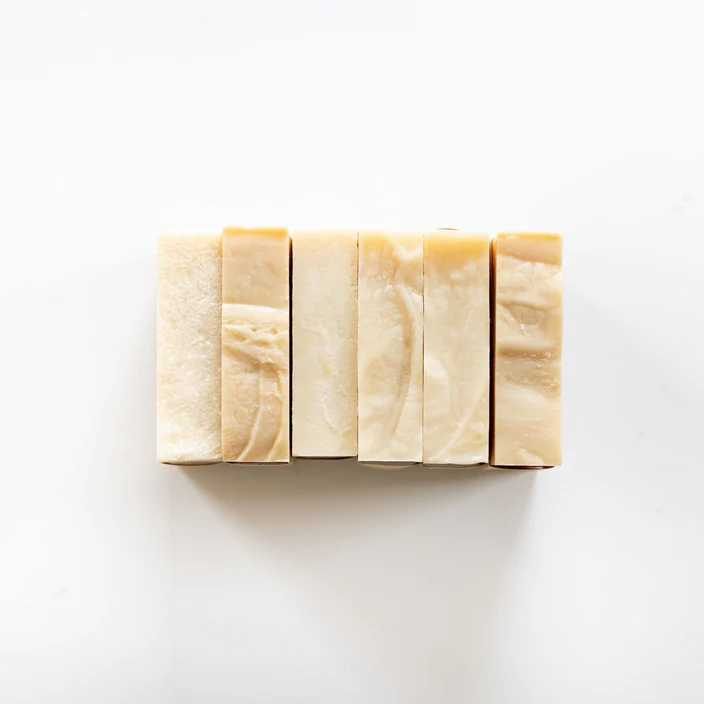
The Ultimate Guide to Understanding Soap Ingredients
The Ultimate Guide to Understanding Soap Ingredients:

Break down common ingredients found in soaps, highlighting which ones are beneficial and which are harmful.
Soap is an essential part of our daily hygiene routine, but not all soaps are created equal. Understanding the ingredients in soap can help you make healthier choices for your skin and the environment. This guide breaks down common ingredients found in soaps, highlighting both beneficial and harmful components.
Beneficial Soap Ingredients
Glycerin: Often found in more gentle soaps, glycerin is a natural humectant, meaning it helps retain moisture in the skin. It's derived from plant oils or animal fats and is known for its skin-softening properties.
Coconut Oil: Celebrated for its antibacterial and antifungal properties, coconut oil is a great ingredient in soap. It helps cleanse the skin without stripping it of its natural oils, maintaining skin's hydration and elasticity.
Rapeseed Oil: Rich in Vitamin E, rapeseed oil is another excellent ingredient for soap, especially for maintaining skin elasticity and moisture. Its natural properties help protect the skin from environmental damage.
Harmful Soap Ingredients

Sodium Lauryl Sulfate (SLS) and Sodium Laureth Sulfate (SLES): These are surfactants used to create lather, but they can strip the skin of its natural oils, leading to irritation, dryness, and even allergic reactions for sensitive skin types.
Parabens: Used as preservatives in many cosmetic products, parabens mimic estrogen and have been linked to an increased risk of breast cancer. They can disrupt the endocrine system and are best avoided.
1,4-Dioxane: This contaminant is created during the manufacturing process of some detergents and cosmetics. It's considered a probable human carcinogen by the EPA and can be avoided by choosing products free from ethoxylated surfactants and PEGs.
Triclosan: An antibacterial agent found in many soaps, triclosan has been associated with antibiotic resistance and hormone disruption. Furthermore, it can contribute to environmental pollution once washed down the drain.
When choosing soap, it's crucial to read labels and understand what goes into the products you're using on your body. Opt for soaps with natural, nourishing ingredients and avoid those with harsh chemicals that can harm your health and the environment. By making informed choices, you can enjoy clean, healthy skin without the side effects of harmful additives.




Leave a comment